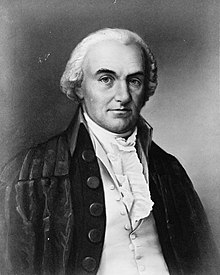 | |
| Long title | An Act for the Punishment of Certain Crimes Against the United States |
|---|---|
| Announced in | the 1st United States Congress |
| Legislative history | |
| |

The Crimes Act of 1790 (or the Federal Criminal Code of 1790),[1] formally titled An Act for the Punishment of Certain Crimes Against the United States, defined some of the first federal crimes in the United States and expanded on the criminal procedure provisions of the Judiciary Act of 1789.[2] The Crimes Act was a "comprehensive statute defining an impressive variety of federal crimes".[3]
As an enactment of the First Congress, the Crimes Act is often regarded as a quasi-constitutional text. The punishment of treason, piracy, counterfeiting, as well as crimes committed on the high seas or against the law of nations, followed from relatively explicit constitutional authority.[4] The creation of crimes within areas under exclusive federal jurisdiction followed from the plenary power of Congress over the "Seat of the Government", federal enclaves, and federal territories.[5] The creation of crimes involving the integrity of the judicial process derived from Congress's authority to establish such courts.
The Crimes Act also established a statute of limitations for federal crimes, provided for criminal venue, ensured procedural protections for treason and capital defendants, simplified the pleading requirements for perjury, and provided protections broader than those in the Constitution against corruption of blood. Further, the act provided for punitive dissection of murderers and codified diplomatic immunity.